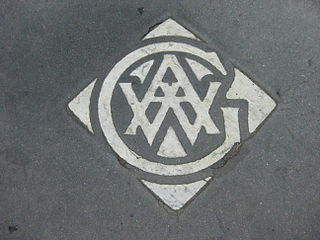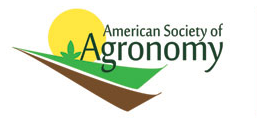
The Mathematical Association of America (MAA) is a professional society that focuses on mathematics accessible at the undergraduate level. Members include university, college, and high school teachers; graduate and undergraduate students; pure and applied mathematicians; computer scientists; statisticians; and many others in academia, government, business, and industry.

The American Anthropological Association (AAA) is an organization of scholars and practitioners in the field of anthropology. With 10,000 members, the association, based in Arlington, Virginia, includes archaeologists, cultural anthropologists, biological anthropologists, linguistic anthropologists, linguists, medical anthropologists and applied anthropologists in universities and colleges, research institutions, government agencies, museums, corporations and non-profits throughout the world. The AAA publishes more than 20 peer-reviewed scholarly journals, available in print and online through AnthroSource. The AAA was founded in 1902.

The American Ornithological Society (AOS) is an ornithological organization based in the United States. The society was formed in October 2016 by the merger of the American Ornithologists' Union (AOU) and the Cooper Ornithological Society. Its members are primarily professional ornithologists, although membership is open to anyone with an interest in birds. The society publishes the two scholarly journals, Ornithology and Ornithological Applications as well as the AOS Checklist of North American Birds. The American Ornithological Society claims the authority to establish standardized English bird names throughout North and South Americas.

In forensic science, questioned document examination (QDE) is the examination of documents potentially disputed in a court of law. Its primary purpose is to provide evidence about a suspicious or questionable document using scientific processes and methods. Evidence might include alterations, the chain of possession, damage to the document, forgery, origin, authenticity, or other questions that come up when a document is challenged in court.

The American Academy of Religion (AAR) is the world's largest association of scholars in the field of religious studies and related topics. It is a nonprofit member association, serving as a professional and learned society for scholars involved in the academic study of religion. It has some 10,000 members worldwide, with the largest concentration being in the United States and Canada. AAR members are university and college professors, independent scholars, secondary teachers, clergy, seminarians, students, and interested lay-people.
The Savage Club, founded in 1857, is a gentlemen's club in London, named after the poet, Richard Savage. Members are drawn from the fields of art, drama, law, literature, music or science.
The Royal Town Planning Institute (RTPI) is the professional body representing planners in the United Kingdom and Ireland. It promotes and develops policy affecting planning and the built environment. Founded in 1914, the institute was granted a royal charter in 1959. In 2018 it reported that it had over 25,000 members.

The American Society of News Editors (ASNE) was a membership organization for editors, producers or directors in charge of journalistic organizations or departments, deans or faculty at university journalism schools, and leaders and faculty of media-related foundations and training organizations. In 2019, it merged with the Associated Press Media Editors to become the News Leaders Association.

The Art Workers' Guild is an organisation established in 1884 by a group of British painters, sculptors, architects, and designers associated with the ideas of William Morris and the Arts and Crafts movement. The guild promoted the 'unity of all the arts', denying the distinction between fine and applied art. It opposed the professionalisation of architecture – which was promoted by the Royal Institute of British Architects at this time – in the belief that this would inhibit design. In his 1998 book, Introduction to Victorian Style, University of Brighton's David Crowley stated the guild was "the conscientious core of the Arts and Crafts Movement".
The Society of Biblical Literature (SBL), founded in 1880 as the Society of Biblical Literature and Exegesis, is an American-based learned society dedicated to the academic study of the Bible and related ancient literature. Its current stated mission is to "foster biblical scholarship". Membership is open to the public and consists of over 8,300 individuals from over 100 countries. As a scholarly organization, SBL has been a constituent society of the American Council of Learned Societies since 1929.

The American Society of Agronomy (ASA) is a scientific and professional society of agronomists and scientists of related disciplines, principally in the United States but with many non-U.S. members as well.
The Society of Multivariate Experimental Psychology (SMEP) is a small academic organization of research psychologists who have interests in multivariate statistical models for advancing psychological knowledge. It publishes a journal, Multivariate Behavioral Research.
Albert Sherman Osborn (1855-1946) is considered the father of the science of questioned document examination in North America.
The Optica Fellow is a membership designation of Optica that denotes distinguished scientific accomplishment. The bylaws of this society only allow 10% of its membership to be designated as an Optica Fellow. The Optica Fellow requires peer group nomination.
Founded in 1922, Western Economic Association International (WEAI) is a non-profit academic society dedicated to the encouragement and dissemination of economic research and analysis. WEAI's principal activities include the publishing of two quarterly journals, and the staging of conferences.

The Society of Montana Pioneers was founded on September 11, 1884, in Helena, Montana, to honor and document the histories of Montana pioneers who were resident in the territory at the time it became a Montana Territory, May 26, 1864. In 1909, the society changed its membership rules to admit pioneers who were resident the territory prior to December 31, 1868. In 1899, the society boasted 1536 active members out of a one time total of 1808. The society did not consider individuals who were assigned to Montana on military duties, individuals who were deemed outlaws such as Henry Plummer of Bannack, or Indians as eligible for membership in the society.
The American Theological Society, founded in 1912, is the oldest professional theological society in North America. It has met at least once each year in various locations on the East Coast of the United States, lately at Princeton Theological Seminary in Princeton, New Jersey. Membership is by nomination and election, and is limited to 100 people at any given time. The purpose of the American Theological Society is to foster research excellence in the various theological disciplines and to cultivate collegial relationships.
The Delaware Valley Ornithological Club (DVOC) is the one of the oldest ornithology organizations in the United States. Founded in 1890, the club has held regular meetings at the Academy of Natural Sciences of Philadelphia for over 125 years, and has published the periodical Cassinia since 1901. Membership is open to any dues paying person with an interest in birds. The club organizes birdwatching field trips throughout the Delaware River valley region, including a dedicated year-round trip schedule within the city limits of Philadelphia (BirdPhilly).
The Eastern Psychological Association is a professional organization for psychologists in the Eastern United States. It holds annual meetings where members present their research findings to colleagues. Established in 1896, it is the oldest regional psychological organization in the United States.









